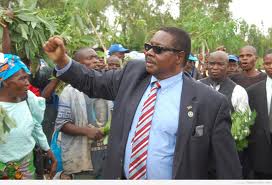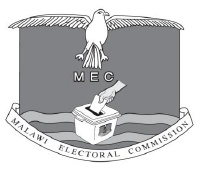Three weeks into his first term in office, Malawi’s new leader Peter Mutharika finally named the 20-member cabinet he promised Malawians on the campaign trail.
Mutharika had always hinted at his intention to save public money in a bid to rekindle an economy on its knees following the plunder of government resources by past regimes. The President promised during the campaign, and repeated it at his inauguration, that one of the measures he would take to ensure public resources are being used prudently, would be to come up with a smaller, leaner cabinet.
This is a bold step from Mutharika as international donors remain non-committal on whether they will finance the country’s budget. It is consequently quite right that the government should try to find ways of conserving its scarce resources.
Mutharika has also made good on his promise to work with opposition leaders in a quest to heal the political divisions exemplified during the election. In his inaugural speech, the President said he was carrying an olive branch in his hands and reaching out to opposition leaders to work together in reconstructing the country.
The appointment of opposition United Democratic Front Presidential candidate, Atupele Muluzi, as his Energy and Mining Minister, is evidence enough that the olive branch has not fallen from his hand.
Having a lean cabinet which includes an opposition leader notwithstanding, Mutharika has his job cut out. There is much that Malawians want from their new President and top of the list is how he intends to win back the confidence of the donor community.
The country’s donors, which contribute 40 percent of the fiscal budget, are currently withholding about $150 million in aid and remain concerned by the plunder of government resources under the administration of his predecessor, Joyce Banda.
The continued suspension of aid leaves Malawi in a dire situation; evidenced by shortages of essential commodities like medicine in government hospitals.
Before Banda took over the government, the Democratic Progressive Party administration of Peter’s brother, Bingu, also ruffled feathers in the donor community after it declared a British envoy personae non-grata. The relationship between the DPP and the donor community has been a difficult one and Peter Mutharika was the Foreign Affairs Minister and Bingu’s most trusted man when the British envoy, Fergus Cochrane-Dyet, was given the boot.
Following his election, Peter Mutharika has, perhaps unfairly, been tarred with the brush of his brother in western countries. Peter therefore has a challenge ahead in proving to the donors that he may be Bingu’s brother but he is also very much his own man.
At a function to celebrate Queen Elizabeth II’s 88th birthday on June 6 in Lilongwei, the British High Commissioner Michael Nevin told the press that Britain has a good relationship with the new President. But donors are currently taking a ‘wait and see’ approach to how Mutharika runs his new government, before a commitment is made to resume aid.
Nevin specifically stated that his team would be watching how the new DPP government will demonstrate its commitments to human rights and good governance, combating corruption, impunity and embracing democratic values and practices.
A grouping of donors under the Common Approach to Budgetary Support (Cabs) bluntly asserted that Mutharika should first of all clean up the mess created by the ‘Cashgate’ scandal which saw the government lose millions of dollars through institutionalised fraud and corruption before aid could start flowing again.
But donors will not take any lip service on the issue of Cashgate, which reports suggest started way back when Bingu was ruling the country. This will be Peter’s toughest assignment in the early part of his government. Investigating Cashgate in its entirety will, however, require him to probe the affairs of some of his own closest people, who stood behind him after the death of his brother.
The government has already announced that it will institute a fresh enquiry on Cashgate. If the government only probes the immediate past regime of Joyce Banda, it will be seen as playing politics with the fight against corruption.
Delivering his maiden State of the Nation address, the President promised that there will be no sacred cows in his government and that those who plundered will meet with the full force of the law. But talk is cheap and what people really want to see is action. They want Mutharika to prosecute public officers and private sector individuals who amassed wealth fraudulently.
The ball is now in Mutharika’s court and he must use it wisely in order to please the donors and see aid flowing again. The President has ambitious plans, one of which is to subsidise the price of cement and iron sheets to ensure poor people are able to construct decent houses. But for an economy with a narrow tax base, this will be a tall order without renewed donor support. The more he delays in implementing this promised subsidy programme, the more he will be disappoint the people who voted him into power.
Mutharika needs the donors and should be prepared to lure them into bed, no matter how this has to be achieved. There has been talk in the country that Malawi should wean itself from donor support given the oft unpredictable nature of their giving. But that time is not now. They are the devil he should be prepared to dine with, at least for now, as he works to assuage his image as Bingu’s brother




